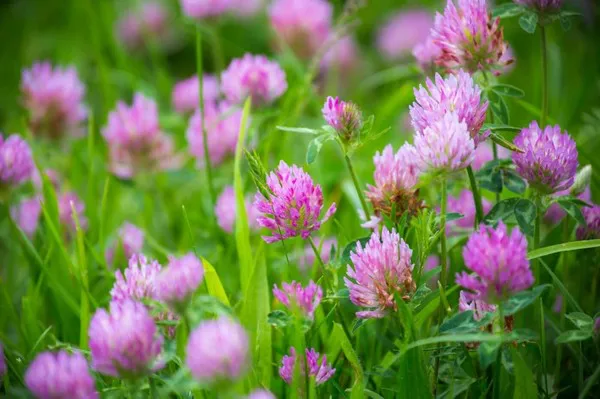For tortoise enthusiasts, providing a balanced and nutritious diet is crucial to ensuring the well-being and health of these fascinating reptiles. While tortoises primarily thrive on a diet of leafy greens and vegetables, the inclusion of edible flowers can add variety and essential nutrients to their meals. However, it’s important to be well-informed about which flowers are safe for tortoises to consume. In this comprehensive guide, we will explore a diverse array of flowers that are not only visually appealing but also serve as a safe and tasty addition to a tortoise’s diet.
Understanding Tortoise Dietary Needs
Before delving into the world of edible flowers, it’s essential to understand the dietary needs of tortoises. Tortoises are herbivores, meaning their diet primarily consists of plant-based foods. A well-balanced tortoise diet includes leafy greens, vegetables, and certain fruits. Edible flowers can be a valuable supplement, providing additional nutrients, flavors, and textures to keep tortoises engaged and satisfied. However, not all flowers are safe for tortoises, and careful selection is paramount to prevent potential harm.
The Importance of Edible Flowers in a Tortoise Diet
Edible flowers offer more than just a burst of color and flavor to a tortoise’s meal; they contribute essential nutrients and enrich the overall nutritional profile. Many edible flowers contain vitamins, minerals, and antioxidants that support a tortoise’s health. Additionally, the varied textures and tastes of different flowers can stimulate a tortoise’s natural foraging instincts, promoting mental stimulation and physical activity. Including a variety of edible flowers in a tortoise’s diet helps mimic the diversity they would encounter in their natural habitat.
See Also: Does cvs have flowers?
Safe Edible Flowers for Tortoises
Dandelion (Taraxacum officinale): Dandelion flowers are not only a common sight in many lawns but also a nutritious option for tortoises. Rich in vitamins A and C, dandelion flowers contribute to a tortoise’s overall immune health. These bright yellow blooms can be offered in moderation as part of a diverse diet.
Hibiscus (Hibiscus rosa-sinensis): Hibiscus flowers are not only visually stunning but also safe for tortoises to consume. Packed with antioxidants, hibiscus flowers contribute to a tortoise’s well-being. Offer these flowers sparingly, and ensure they are free from pesticides or chemicals.
Rose (Rosa spp.): Roses are a safe and delectable option for tortoises, provided they are pesticide-free. Both the petals and hips of roses are edible and can be included in a tortoise’s diet. Roses add a touch of sweetness and a variety of nutrients to the mix.
Nasturtium (Tropaeolum majus): Nasturtium flowers are not only vibrant in color but also high in vitamin C. These flowers have a peppery flavor that tortoises may find appealing. Nasturtiums are easy to grow and make a nutritious addition to a tortoise’s forage.
Marigold (Calendula officinalis): Marigold flowers are not only known for their vibrant orange hue but also for their anti-inflammatory properties. Rich in antioxidants, marigold flowers can be offered to tortoises as a colorful and nutritious treat.
Chamomile (Matricaria chamomilla): Chamomile flowers, known for their calming properties in humans, are safe for tortoises in moderation. These flowers can be a soothing addition to a tortoise’s diet and provide a unique flavor profile.
Daisy (Bellis perennis): Daisy flowers are not only cheerful but also safe for tortoises to eat. These flowers are a good source of vitamins and can be included as part of a varied and balanced diet.
Sunflower (Helianthus annuus): While sunflower seeds are a popular snack for many animals, the petals of sunflowers are also safe for tortoises. Offer sunflower petals in moderation to add a burst of color and flavor to their meals.
Violet (Viola spp.): Violets are not only delicate and attractive but also safe for tortoises. These flowers can be sprinkled over their greens or offered as a standalone treat, providing additional nutrients and visual appeal.
Borage (Borago officinalis): Borage flowers, with their vibrant blue hue, are not only visually striking but also rich in essential fatty acids. These flowers can be an occasional addition to a tortoise’s diet, providing a nutritional boost.
Precautions and Considerations
While many flowers are safe for tortoises, it’s crucial to exercise caution and take certain precautions to ensure their well-being:
Pesticide-Free: Always ensure that the flowers offered to tortoises are free from pesticides, herbicides, or any harmful chemicals. Choose organic or homegrown flowers to minimize the risk of contamination.
Moderation is Key: While edible flowers contribute valuable nutrients, they should be offered in moderation. A diverse and well-balanced diet that includes a variety of greens, vegetables, and fruits is essential for a tortoise’s overall health.
Avoid Toxic Flowers: Some flowers are toxic to tortoises and should be strictly avoided. Examples include azaleas, rhododendrons, lilies, and oleanders. Familiarize yourself with common toxic plants and ensure they are not present in the tortoise’s environment.
Introduce Gradually: When introducing new flowers into a tortoise’s diet, do so gradually. Monitor their response to each flower, and if any signs of digestive upset or allergies occur, discontinue offering that particular flower.
Natural Foraging: Encourage natural foraging behaviors by scattering edible flowers among their greens. This promotes mental stimulation and physical activity, contributing to their overall well-being.
Consult a Vet: If in doubt about the safety of a particular flower or if your tortoise has specific dietary requirements, consult with a reptile veterinarian. They can provide tailored advice based on the individual needs of your tortoise.
Conclusion
In conclusion, incorporating edible flowers into a tortoise’s diet can be a delightful and nutritious experience. The array of colors, flavors, and nutrients offered by safe flowers enhances the overall diet and well-being of these fascinating reptiles. By exercising caution, ensuring flowers are pesticide-free, and introducing them in moderation, you can provide your tortoise with a diverse and visually appealing diet. As with any aspect of tortoise care, a thoughtful and informed approach to their dietary needs contributes to a happy and healthy life for these unique creatures.


